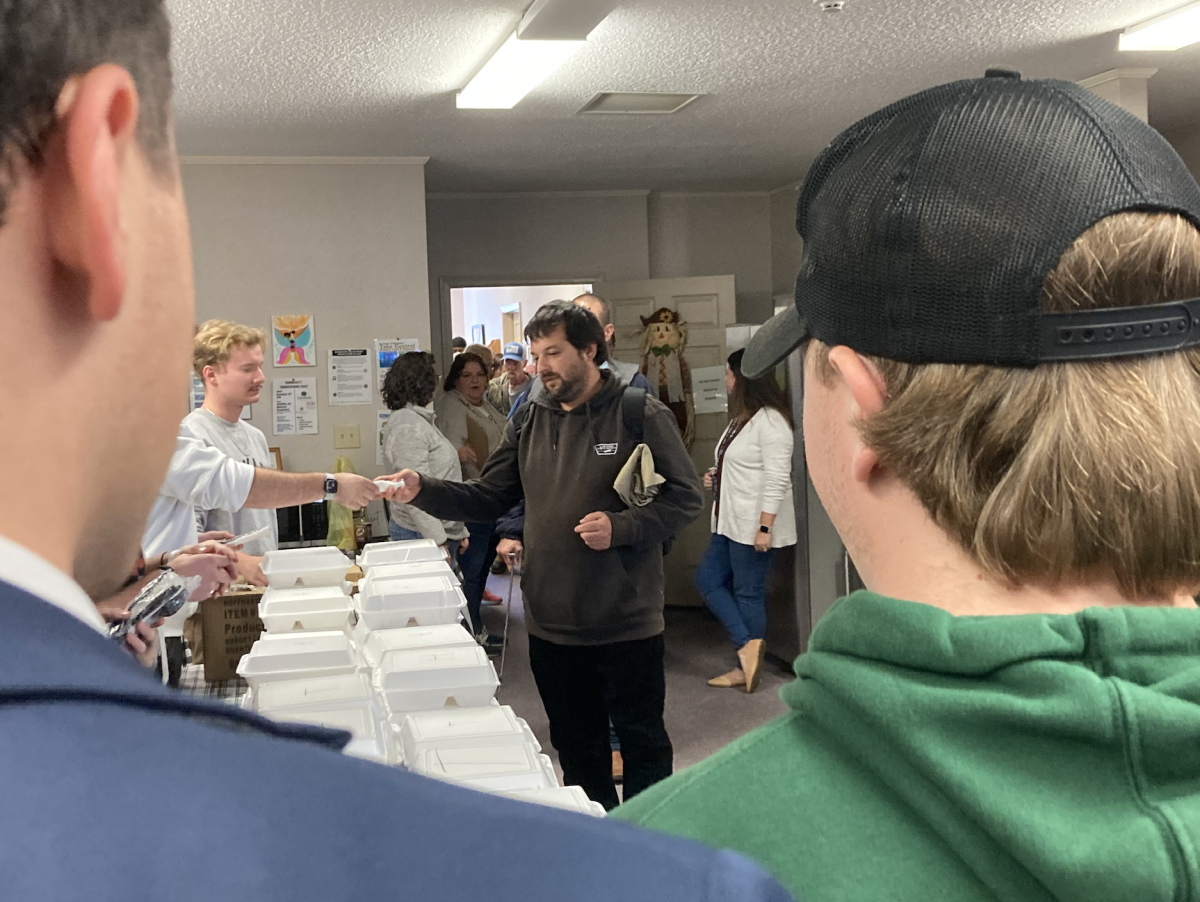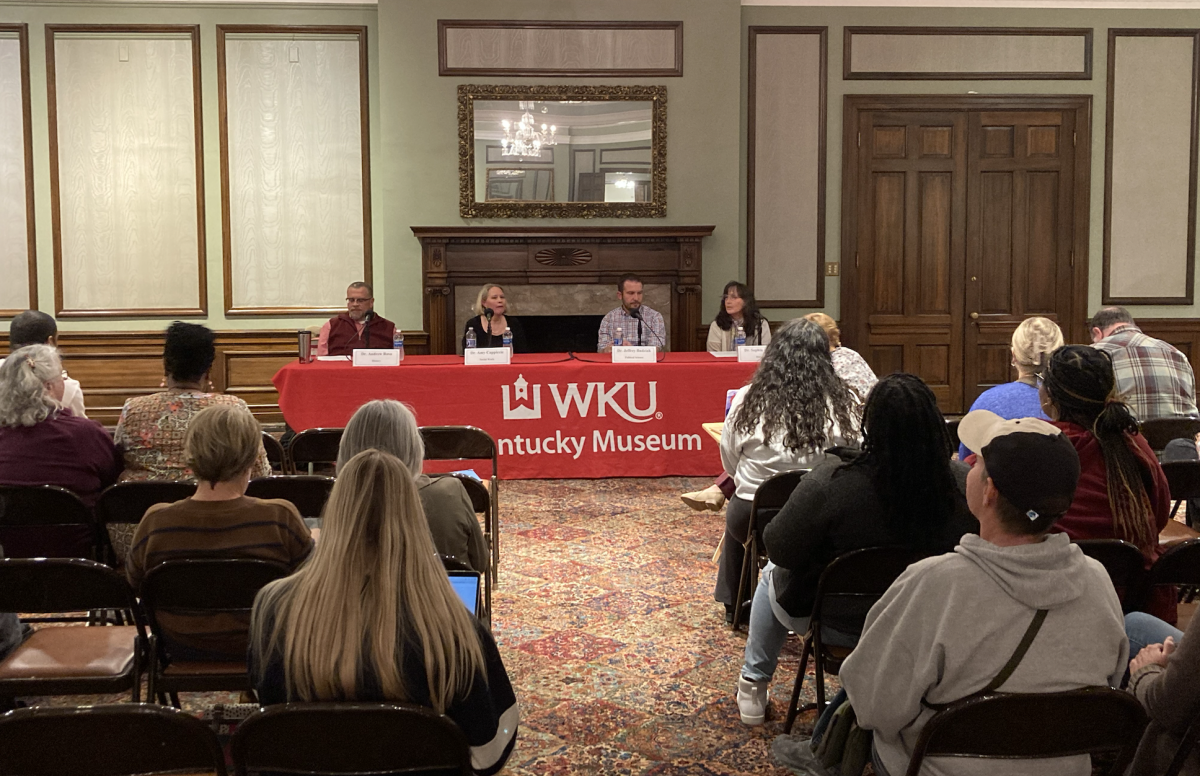Residents of Warren County gathered in the Hilton Garden Inn to hear a panel of speakers supporting Amendment 2 on Tuesday night. The forum was an opportunity for individuals on both sides of the issue to have their voices heard and questions answered.
The forum began with a panel of invited speakers that included Kelley Paul, wife of U.S. Senator Rand Paul, and Jenean Hampton, Kentucky lieutenant governor from 2015 to 2019.
Warren County Conservatives, a local political organization, gathered a group of speakers calling local voters to vote “yes” on Amendment 2 in the upcoming election. The amendment, which will be on the ballot in November, would allow the General Assembly to “provide financial support for the education of students outside the system of common schools.”
Paul spoke about her perceived failings in the public school system, and how she believes Amendment 2 is the path forward.
“We keep doing the same thing for decades, and it’s not working,” Paul said. “We constantly hear we just need more funding. Well, every year we spend more money to increase our public school budgets, and yet scores continue to decline.”
Paul also defended the constitutional change against claims that it will take funding from public schools.
“Amendment 2 will simply allow our elected representatives who are accountable to you, the voter, to consider new options for students and families who are stuck in failing or violent public schools,” she said.
Paul was followed by Jenean Hampton who served as lieutenant governor under former Governor Matt Bevin. A Detroit native, Hampton spoke of her experience in the city’s magnet school program and how it helped her in the long term.
“I was a voracious reader in elementary school, the worst punishment my mom could do for me was take my books away,” Hampton said. “And when I learned that it was once illegal for people with my skin color to read and write, nothing was going to keep me from school.”
Hampton argued for the amendment, saying that it would improve the quality of education for Kentucky children.
“Let’s vote yes on Amendment 2,” Hampton said. “Let’s vote yes because Kentucky’s teachers deserve better. Kentucky’s parents deserve better, and Kentucky’s kids deserve better.”
Paul and Hamton were also joined on the panel by two concerned parents, Walter Blanks Jr. and Ashley Cornwell.
Blanks emphasized that the amendment would make private school education more accessible to families like his own who could not otherwise afford it.
“This is life or death for students that look like me, students that don’t look like me, but primarily for families that don’t have the means,” Walters said. “Those families’ education is the only way out, just like it was for me and my family.”
Cornwell reflected Blanks’s sentiments, saying that public school education is becoming rife with “political content.” She expressed her feelings that “sexually oppressive or politically biased content” were harming her children in their public school education.
It was for these reasons that Cornwell decided to take her children out of public school.
“I chose to homeschool, like so many other Kentucky families, because I cannot afford private tuition,” she said. “I gave up my career, my income, my health insurance and a savings account to ensure that the best situation was provided for my child.”
During the question and answer session that followed the panel’s prepared remarks, opponents of the bill were given an opportunity to voice their concerns.
Former WKU Vice President for Student Affairs Howard Bailey accused the amendment of being a return to segregation-era policies.
“[White segregationists] started their own community church schools, so that the white kids did not have to go to school with black and brown kids,” Bailey said to the panel. “This looks like a rerun of what was done in 1954.”
“I think this will have terrible effects on minority students,” Bailey told the Herald.
Retired Warren County teacher Claudia Hanes also raised concerns about the amendment’s consequences adversely affecting troubled students. “So are you telling me that charter schools don’t have to take kids who are bullies or are aggressive?” she asked the panel.
“I’ve worked with kids who were troubled. I’ve worked with kids who were bullies. I’ve worked with kids who are disabled,” Hanes said. That’s what public education is meant to do, accept everybody and educate everybody.”
“But to me, it feels like we’re trying to divide ourselves, and what we ought to be doing is rallying around public education,” Hanes continued. “The problem can be solved if we want to solve it.”
Blanks expressed his hopes for Amendment 2 to the Herald. He talked about wanting it to be an incentive to create discussions.
“If you’re going to do it right, bring everyone to the table,” Blanks said.
News Reporter Malone Farmer can be reached at james.farmer674@topper.wku.edu.








